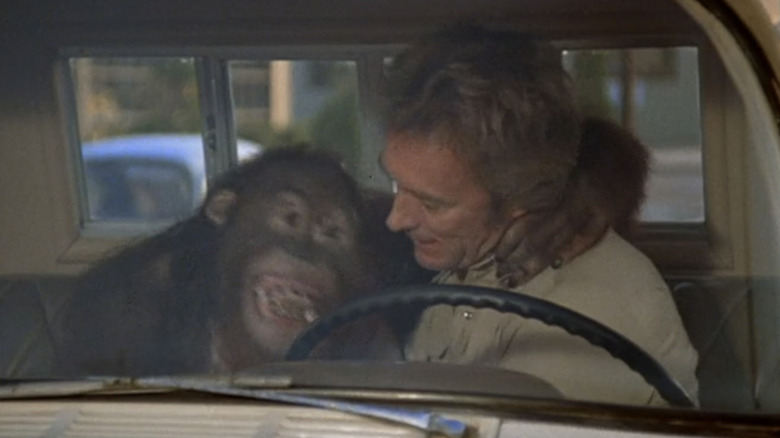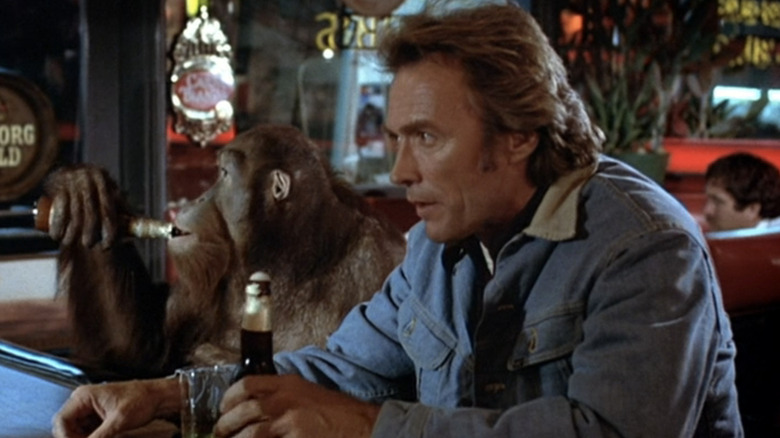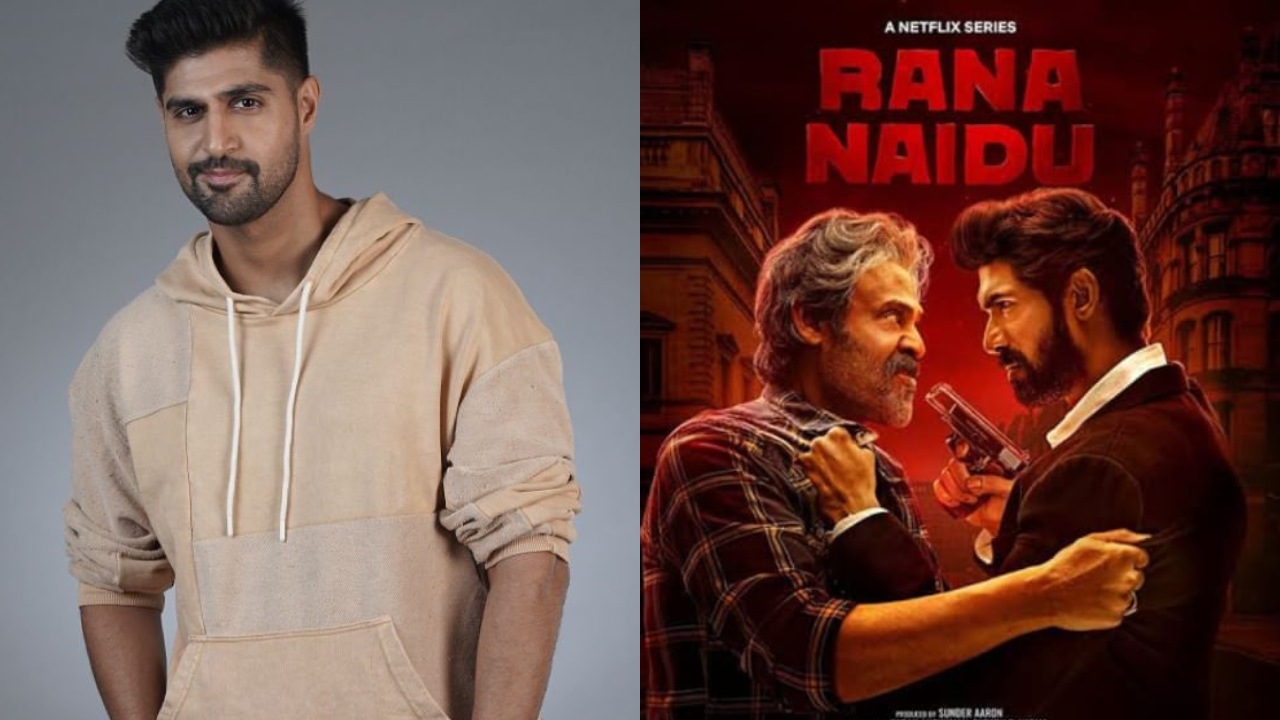It doesn't exactly sound like the kind of thing Eastwood would go for, does it? In fairness, Philo wasn't a role entirely devoid of the tough guy persona Eastwood was known for. The man made money on the side by bare-knuckle boxing, and over the course of the movie takes on everyone from biker gangs to LAPD cops (and wins). But there's no doubt this film was an outlier amid the Eastwood oeuvre and critics were merciless in their appraisal. That said, the movie made quite a surprising amount of money and the veteran actor certainly had a good time with his animal co-star.
Clint Eastwood Described One Of His Most Infamous Co-Stars As A 'Big Baby'

Warner Bros.
Today, Clint Eastwood is one of the most respected and celebrated figures in Hollywood history. Having been nominated 11 times for an Academy Award and winning four, directing some of the finest films of the last few decades, and establishing himself as one of the most bankable stars in the industry during the '60s and '70s, there's really nothing that can tarnish his reputation (except for that Eastwood and Burt Reynolds movie that Roger Ebert hated enough to call a "travesty.")
Back in 1978, however, critics were pretty certain this big screen titan had sullied his name with "Every Which Way but Loose." The New York Times' Janet Maslin claimed the film was "the slackest and most harebrained of Mr. Eastwood's recent movies," calling the movie "overlong and virtually uneventful." She wasn't the only one either. David Ansen of Newsweek was similarly withering in his appraisal, writing, "One can forgive the orangutan's participation—he couldn't read the script—but what is Eastwood's excuse?"
Prior to agreeing to the film, Eastwood was told by his agent and lawyers not to star. But he was convinced the film would be a good change of pace, and to his credit, "Every Which Way but Loose" was such a box office success that it stands as his eighth-highest grossing film of all time worldwide, and his second-highest grossing domestically.
But it wasn't just the tone of the film that prompted warnings against starring in "Every Which Way but Loose." In a 1978 interview, the actor was asked about his animal co-star, replying, "We got on fine. At first [...] people advised me against it because orangutans are supposed to be tremendously strong, which they are, and it's a wild animal etc. etc." On-set, however, Eastwood and Manis got along well according to the actor, who said Manis was "just a big baby," adding, "You give him half a beer and he's just as loose as anything around."

Warner Bros.
While it's nice to hear that Clint Eastwood and Manis got along on the set of "Every Which Way but Loose" there is a dark undertone to the whole thing. The movie wasn't just controversial because Dirty Harry was suddenly goofing around with an ape. Following its release, allegations emerged that Manis had endured abuse at the hands of his trainer — though it turned out this abuse was more likely experienced by Buddha, the orangutan used for the 1980 sequel "Any Which Way You Can."
Hopefully, there was no such thing going on with either film, and Eastwood's comments about giving Manis beer were harmless. At the very least, it seems the typically stern Eastwood got along well with the orangutan. The veteran star has previously clashed with colleagues and contemporaries, like the time his feud with Spike Lee got so bad that Steven Spielberg had to step in. Had Manis stoked his ire, it would have made an already ridiculous situation even worse.
On the contrary, Eastwood was even more complimentary of Manis on another occasion. In Michael Munn's book "Clint Eastwood: Hollywood's Loner," the actor said that Manis was "one of the most natural actors [he] ever worked with," adding, "But you had to get him on the first take because his boredom level was very limited."










